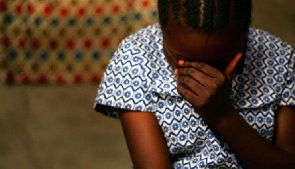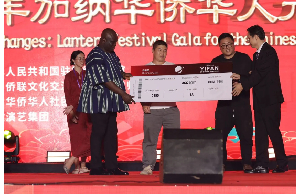Madam Agnes Obeng of World Vision International- Ghana (WVG), has stated that non-prosecution of people involved in the promotion of child marriage was one of the causes of the unending fight on the situation.
She said the problem would linger on if nothing was done about it, causing the country to continue to lose the rich contributions by those skilled, talented and brilliant girls to national development.
Madam Obeng who was sharing a research finding conducted by the WVG on child marriage at a workshop held in Accra for faith-based leaders said the national records stood at 27.2 percent.
She said the Northern, Upper West and Upper East Regions recorded the highest of 39.6, 37.3 and 36.1 percent, respectively, followed by Central and Eastern with 29.5 and 27.5 percent in that order.
The Ashanti and Volta Regions both scored 25.9 per cent each whereas Brong Ahafo and Greater Accra Regions registered the least numbers of 23.9 and 18.5 per cent.
The workshop was attended by representatives from both Christian and Islamic communities, among other stakeholders, to help build their knowledge to enable them serve as voices for young girls by ending the socio-cultural practices through their work.
To complement this, 54 selected faith leaders have been trained as facilitators of hope to child protection, 413 faith leaders and their spouses empowered in 16 districts where WVG operated and 90 community child protection communities across Ghana set up.
Madam Obeng said other causes that had made the legal framework ineffective was the stigma, causing families to discontinue reported cases, lack of child tribunals at the district levels to handle neglect cases, lack of access to the services of the Domestic Violence and Victim’s Support Unit (DoVVSU) of the Ghana Police Service in the districts and weak linkage between state and child protection departments.
Disconnection between the law enforcers and the community as well as culture and family networks as other causes, she noted, contributing to the ineffectiveness of the legal framework guiding against child marriage.
Madam Obeng said it was discovered that parents or guardians and sometimes girls agreed to marry because of prestige, basic needs or escape from poverty, adding that it came with negative effects such as discontinuity of girl’s child education, prone to domestic violence, child labour, difficulty in child birth, maternal or child mortality and problems of employment.
She laid out some of the challenges facing stakeholder institutions fighting child marriage as difficulties determining the ages of the victims, partnership problems and logistics.
Madam Irene Sawerteh, also of WVG, disseminating the content of another research conducted in collaboration with the Centre for Social Policy Studies, University of Ghana, revealed that 15 million girls got married before their 18 birthday.
About 130 million girls between ages 15 and 45 years had experienced Female Genital Mutilation (FGM), whilst one out of every ten girls had been subjected to forced sexual intercourse and one in every three adolescent girls between 15 and 19 years had been domestically abused.
General News of Tuesday, 22 May 2018
Source: ghananewsagency.org
Increment in child marriage attributed to non-prosecution of case
Entertainment












